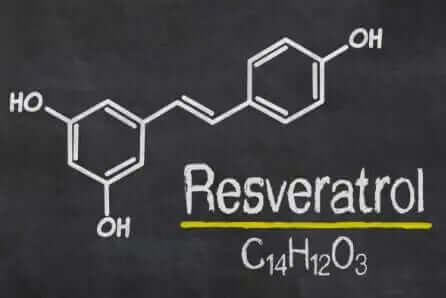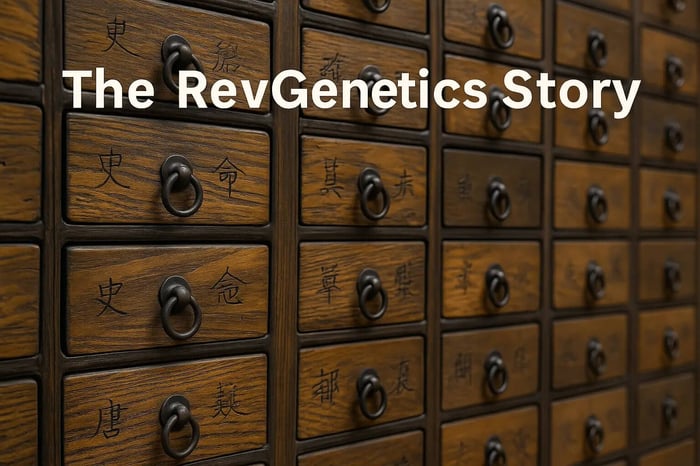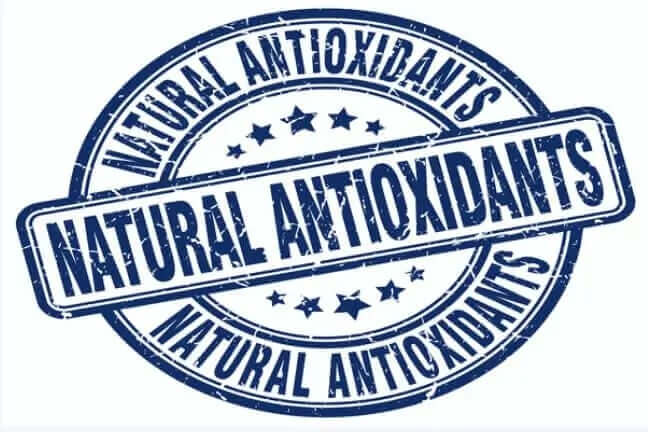Resveratrol in Cancer Treatment: How This Powerful Antioxidant Reduces Chemotherapy Side Effects
The journey through cancer treatment represents one of life's most challenging experiences, where patients must balance the hope of recovery with the harsh realities of treatment side effects. Resveratrol, a powerful natural compound found in red grapes and wine, has emerged as a beacon of hope in oncology research, offering potential solutions for reducing the devastating side effects of chemotherapy while potentially enhancing treatment effectiveness.
Traditional cancer treatments, while often life-saving, frequently come with significant costs to patient wellbeing and quality of life. The search for complementary approaches that can protect healthy cells while supporting treatment efficacy has led researchers to investigate resveratrol's unique properties as both a protective agent and treatment enhancer in cancer care.
This comprehensive exploration examines the latest research on resveratrol's role in cancer treatment, from its ability to reduce chemotherapy-induced toxicity to its potential for improving treatment outcomes. Understanding how this remarkable compound works at the cellular level provides hope for cancer patients seeking ways to minimize treatment side effects while maximizing therapeutic benefits.
Understanding the Challenge: Chemotherapy Side Effects and Patient Quality of Life
Modern cancer treatment has achieved remarkable success rates, transforming many cancers from fatal diagnoses to manageable chronic conditions. However, the powerful drugs used to combat cancer cells often lack the precision to distinguish between malignant and healthy cells, leading to a cascade of side effects that can significantly impact patient quality of life and treatment compliance.
The complexity of chemotherapy side effects extends far beyond the commonly known symptoms of nausea and hair loss. Patients frequently experience cardiovascular complications, cognitive impairment often called "chemo brain," severe fatigue, immune system suppression, and organ damage that can persist long after treatment completion. These effects can be so severe that they sometimes force treatment delays or dose reductions, potentially compromising therapeutic outcomes.
For many patients, the fear of side effects rivals their fear of cancer itself, creating psychological barriers to seeking or continuing treatment. This reality has driven researchers to explore natural compounds like resveratrol that might offer protective benefits without interfering with cancer treatment effectiveness.
The cardiovascular system proves particularly vulnerable to certain chemotherapy agents, with treatments like arsenic trioxide causing structural heart damage that can lead to life-threatening arrhythmias. These complications create a challenging balancing act for oncologists who must weigh immediate cancer treatment needs against long-term patient health and survival.
Resveratrol: A Natural Solution for Treatment-Related Complications
Resveratrol has captured the attention of cancer researchers due to its unique combination of antioxidant, anti-inflammatory, and cellular protective properties. Unlike synthetic drugs that often target single pathways, this natural compound works through multiple mechanisms to support cellular health and protect against the oxidative damage that underlies many chemotherapy side effects.
The compound's ability to neutralize free radicals becomes particularly valuable during cancer treatment, when chemotherapy agents generate massive amounts of oxidative stress throughout the body. This oxidative damage affects not only cancer cells but also healthy tissues, leading to many of the side effects that make treatment so challenging for patients.
What makes resveratrol especially promising is its apparent ability to provide cellular protection without interfering with cancer treatment effectiveness. Early research suggests that resveratrol may actually enhance the therapeutic effects of certain chemotherapy agents while simultaneously protecting healthy cells from damage.
The compound's natural origin also appeals to many patients who prefer integrative approaches that combine conventional treatment with natural supportive therapies. This preference for natural solutions has driven increased research into resveratrol's potential applications in oncology care.
Breakthrough Research: Resveratrol Reduces Arsenic Trioxide Toxicity
A landmark study published in PLOS ONE revealed resveratrol's remarkable potential for reducing the cardiovascular toxicity associated with arsenic trioxide, a critical first-line treatment for acute promyelocytic leukemia (APL). This research represents a significant breakthrough in understanding how natural compounds can address one of oncology's most pressing challenges: maintaining treatment effectiveness while minimizing harmful side effects.
Arsenic trioxide demonstrates exceptional effectiveness against relapsing APL, often achieving complete remission in patients who have failed other treatments. However, prolonged use of this compound leads to serious cardiovascular complications, including structural heart damage and potentially fatal ventricular arrhythmias that can persist long after treatment completion.
The research team investigated whether antioxidant compounds could protect against this cardiovascular damage by targeting the underlying mechanisms of oxidative stress and mitochondrial injury that drive arsenic trioxide toxicity. Their systematic comparison of resveratrol and genistein, two powerful natural antioxidants, yielded surprising results that highlighted resveratrol's superior protective potential.
The Science Behind Resveratrol's Protective Effects
The study demonstrated that resveratrol at a concentration of just 5 μM remarkably alleviated arsenic trioxide-induced toxicity in leukemia cell lines. Perhaps even more impressive, researchers needed a 10-fold higher concentration of genistein to achieve similar protective effects, clearly demonstrating resveratrol's superior antioxidant potential and efficiency.
This dramatic difference in required dosages suggests that resveratrol possesses unique molecular properties that make it exceptionally effective at neutralizing the specific types of oxidative damage caused by chemotherapy agents. The compound's ability to protect cellular mitochondria, often called the powerhouses of cells, proves particularly crucial since mitochondrial damage underlies many chemotherapy side effects.
Beyond simple antioxidant protection, the researchers observed that resveratrol treatment increased levels of autophagy in treated cells. Autophagy represents a crucial cellular cleanup process that removes damaged components and supports cellular health, suggesting that resveratrol provides multi-layered protection through several complementary mechanisms.
The increased autophagy activity also correlated with enhanced tumor cell death, indicating that resveratrol not only protects healthy cells but may actually improve treatment effectiveness by supporting the elimination of cancer cells. This dual benefit represents the ideal outcome for any adjunctive cancer therapy.
Comprehensive Benefits: How Resveratrol Enhances Cancer Treatment Outcomes
The benefits of resveratrol in cancer treatment extend far beyond cardiovascular protection to encompass a wide range of treatment-related challenges that affect patient wellbeing and treatment success. Research has identified multiple mechanisms through which this remarkable compound can improve the cancer treatment experience while potentially enhancing therapeutic outcomes.
Reducing Common Chemotherapy Side Effects
Clinical observations and research studies have documented resveratrol's ability to address many of the most troublesome side effects associated with cancer treatment. Patients often experience significant improvements in energy levels, cognitive function, and appetite when resveratrol is incorporated into their supportive care regimen.
The compound's anti-inflammatory properties prove particularly valuable for addressing treatment-related fatigue, one of the most persistent and debilitating side effects reported by cancer patients. By reducing inflammatory markers throughout the body, resveratrol may help restore normal energy metabolism and reduce the overwhelming exhaustion that often accompanies chemotherapy.
Cognitive impairment, commonly known as "chemo brain," represents another area where resveratrol shows promise. The compound's ability to protect neural tissue from oxidative damage and support healthy brain function may help preserve cognitive abilities during treatment, allowing patients to maintain better quality of life and functionality.
Appetite loss and associated nutritional challenges also respond favorably to resveratrol supplementation in some patients. The compound's anti-inflammatory effects may help reduce treatment-induced changes in taste and smell while supporting healthy digestive function, encouraging better nutritional intake during the critical treatment period.
Enhancing Treatment Effectiveness
Perhaps most exciting is emerging evidence that resveratrol may actually enhance the effectiveness of certain cancer treatments rather than simply reducing side effects. Research suggests that the compound can increase cancer cell sensitivity to chemotherapy agents, potentially allowing for better treatment outcomes with lower drug doses.
The mechanism behind this enhancement appears related to resveratrol's ability to overcome cellular resistance mechanisms that cancer cells develop to evade treatment. By modulating key cellular pathways, resveratrol may help restore cancer cell vulnerability to therapeutic agents, improving treatment success rates.
This chemosensitization effect could prove particularly valuable for patients with treatment-resistant cancers or those who have experienced cancer recurrence. The ability to restore treatment sensitivity while simultaneously protecting healthy cells represents a significant advancement in cancer care approaches.
Studies have also suggested that resveratrol may help prevent the development of treatment resistance, potentially extending the effectiveness of chemotherapy regimens and reducing the need for increasingly toxic salvage treatments.
Understanding Resveratrol's Chemoprotective Properties
The concept of "chemoprevention" represents an emerging area of cancer research focused on protecting healthy cells from treatment-related damage while maintaining or enhancing therapeutic effectiveness against cancer cells. Resveratrol has emerged as one of the most promising chemoprotective agents due to its unique ability to provide selective cellular protection.
The compound's chemoprotective effects appear to work through multiple complementary pathways, including direct antioxidant activity, enhancement of cellular repair mechanisms, and modulation of inflammatory responses. This multi-target approach provides comprehensive protection that addresses the various ways chemotherapy can damage healthy tissues.
Importantly, resveratrol's protective effects appear to be selective, primarily benefiting healthy cells while potentially enhancing cancer cell death. This selectivity is crucial for any compound being considered as an adjunct to cancer treatment, as broad cellular protection could theoretically interfere with treatment effectiveness.
Research continues to explore the optimal timing, dosing, and administration methods for maximizing resveratrol's chemoprotective benefits while ensuring no interference with cancer treatment protocols. This ongoing research aims to establish clear guidelines for safely incorporating resveratrol into comprehensive cancer care plans.
Clinical Applications and Future Directions
The translation of promising laboratory research into clinical practice requires careful consideration of safety, efficacy, and optimal implementation strategies. While resveratrol shows remarkable promise in preclinical studies, its integration into cancer care must be approached thoughtfully and with appropriate medical supervision.
Current Clinical Applications
Some forward-thinking oncology practices have begun incorporating resveratrol into integrative cancer care protocols, particularly for patients experiencing significant treatment-related side effects or those at high risk for treatment complications. These early clinical applications focus primarily on supportive care rather than primary treatment modification.
Patient response to resveratrol supplementation varies considerably, with some individuals experiencing dramatic improvements in energy, cognitive function, and overall wellbeing, while others notice more subtle benefits. This variability highlights the need for personalized approaches and careful monitoring when incorporating resveratrol into cancer care plans.
The timing of resveratrol administration relative to chemotherapy treatments requires careful consideration to maximize benefits while avoiding any potential interactions. Some practitioners recommend specific dosing schedules that optimize the compound's protective effects while ensuring no interference with treatment pharmacokinetics.
Safety Considerations and Professional Guidance
While resveratrol demonstrates an excellent safety profile in most individuals, its use during active cancer treatment requires professional medical supervision. The compound can interact with certain medications and may affect blood clotting, making medical oversight essential for safe implementation.
Quality and purity become particularly important when considering resveratrol for cancer support applications. Pharmaceutical-grade supplements from reputable manufacturers like RevGenetics ensure consistent potency and purity, crucial factors when dealing with serious health conditions requiring precise therapeutic approaches.
Patients should never attempt to self-treat with resveratrol or any other supplement during cancer treatment without consulting their oncology team. Professional guidance ensures that any adjunctive therapies complement rather than interfere with primary treatment protocols.
Optimizing Resveratrol Benefits in Cancer Care
Maximizing the potential benefits of resveratrol in cancer treatment requires understanding optimal dosing strategies, timing considerations, and quality factors that influence therapeutic outcomes. This knowledge empowers both patients and healthcare providers to make informed decisions about incorporating this promising compound into comprehensive cancer care plans.
Dosage and Administration Strategies
Research suggests that effective resveratrol dosing for cancer support may be lower than previously thought, with studies showing significant benefits at relatively modest concentrations. This finding is encouraging for both safety and cost considerations, suggesting that therapeutic benefits may be achievable without high-dose supplementation.
The bioavailability of resveratrol can be enhanced through various formulation strategies, including combination with other compounds that improve absorption or specialized delivery systems that increase cellular uptake. These advances in supplement technology may allow for even greater therapeutic benefits with lower doses.
Timing of administration relative to chemotherapy sessions appears crucial for optimizing benefits while avoiding potential interactions. Some research suggests that resveratrol may be most beneficial when taken several hours before or after chemotherapy to maximize protective effects without interfering with treatment mechanisms.
Quality and Sourcing Considerations
The quality of resveratrol supplements varies dramatically between manufacturers, making careful selection crucial for therapeutic applications. High-quality products provide detailed information about purity, potency, and testing protocols, essential factors when considering supplements for serious health applications.
Third-party testing and certificates of analysis help ensure that resveratrol supplements contain the stated amounts of active compounds without harmful contaminants. This verification becomes particularly important for cancer patients whose immune systems may be compromised by treatment.
Some individuals may benefit from professional-grade resveratrol formulations specifically designed for therapeutic applications. These products often undergo more rigorous testing and quality control measures compared to general consumer supplements.
Frequently Asked Questions About Resveratrol in Cancer Treatment
How does resveratrol help with cancer treatment side effects?
Resveratrol helps reduce cancer treatment side effects through its powerful antioxidant and anti-inflammatory properties. Research shows it can alleviate chemotherapy-induced toxicity, protect against cardiovascular damage from treatments like arsenic trioxide, and reduce common side effects including fatigue, cognitive impairment, and appetite loss.
Can resveratrol be taken safely during chemotherapy?
While research suggests resveratrol may offer protective benefits during chemotherapy, it's crucial to consult with your oncology team before adding any supplements to your treatment regimen. Some studies indicate resveratrol can enhance treatment effectiveness while reducing side effects, but professional medical guidance is essential for safe integration.
What makes resveratrol effective against chemotherapy side effects?
Resveratrol's effectiveness comes from its ability to neutralize free radicals produced during chemotherapy, protect mitochondria from damage, reduce inflammation, and support cellular repair mechanisms. Studies show it has superior antioxidant potential compared to other compounds like genistein, requiring lower doses for protective effects.
Does resveratrol interfere with cancer treatments?
Current research suggests resveratrol may actually enhance cancer treatment effectiveness rather than interfere with it. Studies show it can increase cancer cell sensitivity to chemotherapy and help overcome resistance mechanisms. However, timing and dosage must be carefully managed with professional supervision.
What dosage of resveratrol is used in cancer research?
Research studies have used various dosages, with some showing protective effects at concentrations as low as 5 μM. However, optimal dosing for cancer support varies greatly depending on individual factors, treatment protocols, and specific cancer types. Professional medical guidance is essential for determining appropriate dosages.
Can resveratrol prevent cancer recurrence?
While resveratrol shows promise in cancer prevention research due to its antioxidant and anti-inflammatory properties, more research is needed to definitively establish its role in preventing recurrence. Its protective effects on healthy cells and support for immune function may contribute to overall cancer prevention strategies.
Are there any risks to taking resveratrol during cancer treatment?
While generally well-tolerated, resveratrol can interact with certain medications and may affect blood clotting. Some studies suggest it could be toxic to both normal and cancer cells at high doses. This is why professional medical supervision is crucial when considering resveratrol during active cancer treatment.
How does resveratrol compare to other antioxidants for cancer support?
Research indicates resveratrol may have superior antioxidant potential compared to compounds like genistein, requiring 10-fold lower concentrations to achieve similar protective effects. Its unique ability to support autophagy and cellular cleanup processes may provide additional benefits beyond simple antioxidant activity.
Can resveratrol help with specific types of cancer?
Research has shown particular promise for resveratrol in blood cancers like acute promyelocytic leukemia, where it helps protect against treatment-related cardiovascular damage. However, studies are ongoing for various cancer types, and individual responses may vary significantly.
Where can I find high-quality resveratrol supplements?
High-quality resveratrol supplements should be sourced from reputable manufacturers with third-party testing and clear labeling. Companies like RevGenetics provide pharmaceutical-grade resveratrol with detailed information about purity and potency, which is important when considering therapeutic applications.
The Future of Resveratrol in Oncology
As research into resveratrol's applications in cancer care continues to expand, several promising directions are emerging that could further enhance its therapeutic potential. Ongoing studies are investigating optimal combination strategies, personalized dosing approaches, and novel delivery methods that could maximize benefits while minimizing any potential risks.
The development of resveratrol analogs and enhanced formulations may lead to even more effective compounds that retain the beneficial properties while addressing current limitations such as bioavailability and metabolism. These advances could make resveratrol-based therapies more accessible and effective for a broader range of cancer patients.
Personalized medicine approaches are beginning to incorporate genetic factors that influence individual responses to resveratrol, potentially allowing for customized treatment protocols that optimize benefits based on each patient's unique biological profile. This precision approach could dramatically improve outcomes while reducing the trial-and-error often associated with supplement use.
The integration of resveratrol into standard cancer care protocols may eventually become routine as more research establishes clear safety and efficacy guidelines. This evolution could transform cancer treatment from a purely aggressive approach to a more balanced strategy that emphasizes both treatment effectiveness and patient quality of life.
Hope and Healing: Resveratrol's Promise for Cancer Patients
The emerging research on resveratrol in cancer treatment offers genuine hope for patients facing the dual challenge of fighting cancer while managing treatment side effects. This natural compound represents a bridge between conventional oncology and integrative medicine, providing scientifically-backed support that addresses patient needs for both effective treatment and quality of life preservation.
For patients currently undergoing cancer treatment or those concerned about potential side effects, resveratrol research provides optimism that natural approaches can meaningfully improve the treatment experience. The compound's ability to protect healthy cells while potentially enhancing treatment effectiveness represents a significant advancement in supportive cancer care.
As our understanding of resveratrol's mechanisms and applications continues to evolve, cancer patients and their healthcare teams have increasing opportunities to incorporate this promising compound into comprehensive treatment strategies. The key lies in thoughtful implementation with appropriate professional guidance and high-quality products.
The journey through cancer treatment need not be one of simply enduring side effects while hoping for recovery. With compounds like resveratrol offering scientifically-backed support for both treatment enhancement and side effect reduction, patients can approach their cancer journey with greater confidence and hope for not just survival, but thriving throughout and beyond treatment.
For those interested in learning more about high-quality resveratrol options or understanding potential side effects, consulting with healthcare providers and exploring reputable sources like RevGenetics can provide the information and products needed to make informed decisions about incorporating this promising compound into cancer care strategies.
References:
- https://nyaspubs.onlinelibrary.wiley.com/doi/abs/10.1111/nyas.13466
- https://www.sciencedirect.com/science/article/abs/pii/S1359644610002540
- https://aacrjournals.org/cancerpreventionresearch/article/2/5/409/47842/Cancer-Prevention-and-Treatment-with-Resveratrol







